Conflict
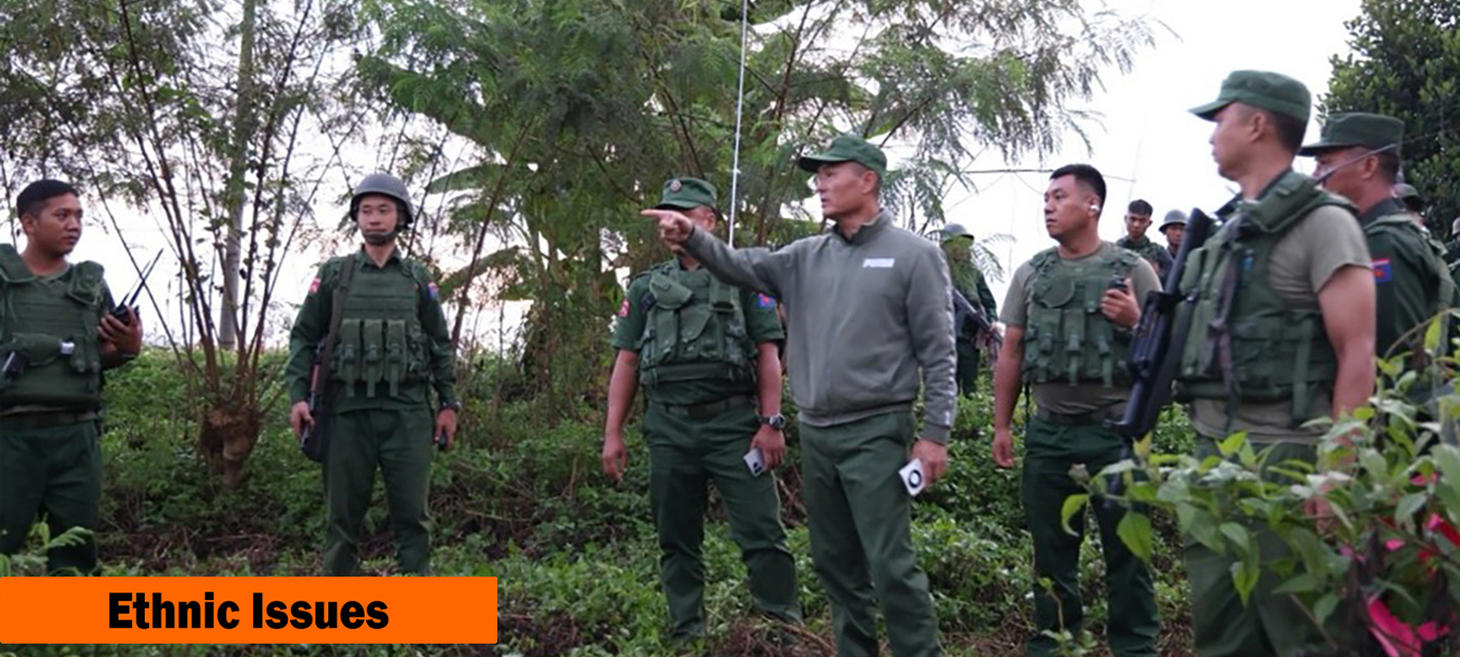
MNDAA Reinforces Lashio, Defying Chinese Demands
The Myanmar National Democratic Alliance Army (MNDAA) has reinforced its presence in Lashio, northern Shan State, despite Chinese demands to withdraw after seizing the city and its Northeastern Command headquarters in August. The group has fortified supply routes and warned residents to prepare for airstrikes amid intensified clashes with junta forces near strategic locations like Hoya village, which is critical for Lashio’s defense. The junta has responded by deploying reinforcements, blocking key roads, and restricting food and fuel supplies to Lashio, creating significant hardships for residents. Tensions remain high as both sides prepare for further confrontations over control of the city.

Myanmar: Situation Update with Paul Greening
Paul Greening, a political analyst on Myanmar, highlights growing speculation that China may deploy troops and security personnel, potentially alongside Russia’s Wagner Group, to protect its investments, including the critical oil and gas pipelines running from Myanmar to Yunnan Province. This development could significantly influence the civil war, particularly in Rakhine State, which has seen some of the worst fighting since the military coup in 2021. Speculation intensified following junta chief Min Aung Hlaing’s meeting with Chinese officials and reports of MNDAA leader Peng Daxun being placed under house arrest in Yunnan. Meanwhile, ethnic armed organizations (EAOs) and People’s Defense Forces have encircled Mandalay but are unlikely to launch a full-scale assault due to concerns over civilian casualties. Instead, they plan to lay siege to the city, disrupt supply routes, and consolidate their positions while targeting the military’s central strongholds during the dry season.

Myanmar Topped World For Landmine Casualties in 2023, Monitor Says
Myanmar recorded the highest number of landmine casualties globally in 2023, with over 1,000 people killed or injured, marking a nearly threefold increase from the previous year, according to the Landmine Monitor report by the International Campaign to Ban Landmines. The intensification of the civil war since the 2021 coup has driven a significant rise in the use of anti-personnel mines, particularly by the Myanmar military around infrastructure and residential areas, leading to widespread contamination across all 14 states and regions. Resistance groups have also used improvised mines, though the military remains the primary perpetrator, even forcing civilians to act as human mine sweepers. The report highlights the devastating human toll of the conflict, with children comprising a third of civilian casualties and no end in sight as landmines continue to be deployed indiscriminately.
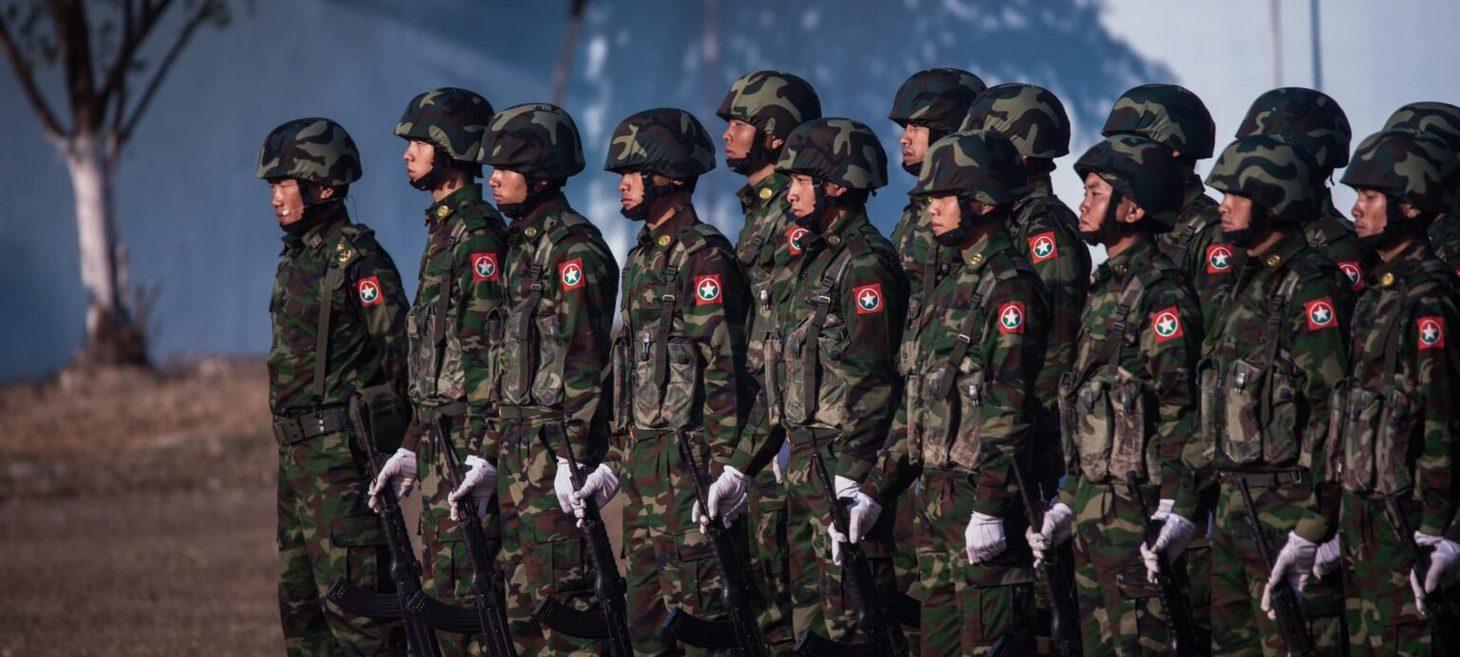
Kachin fighters take town from Myanmar military, border guard force
The Kachin Independence Army (KIA) and its allies successfully seized Kan Paik Ti in Kachin State on Wednesday, completing their takeover of Special Region 1 from a junta-allied border guard force. Located in Waingmaw Township near the Chinese border, the town fell after a final push by the KIA that began at 9 am and concluded by 5 pm. This victory marks a significant gain for the KIA in its ongoing resistance against Myanmar’s military regime, further consolidating control over strategic areas in the region.
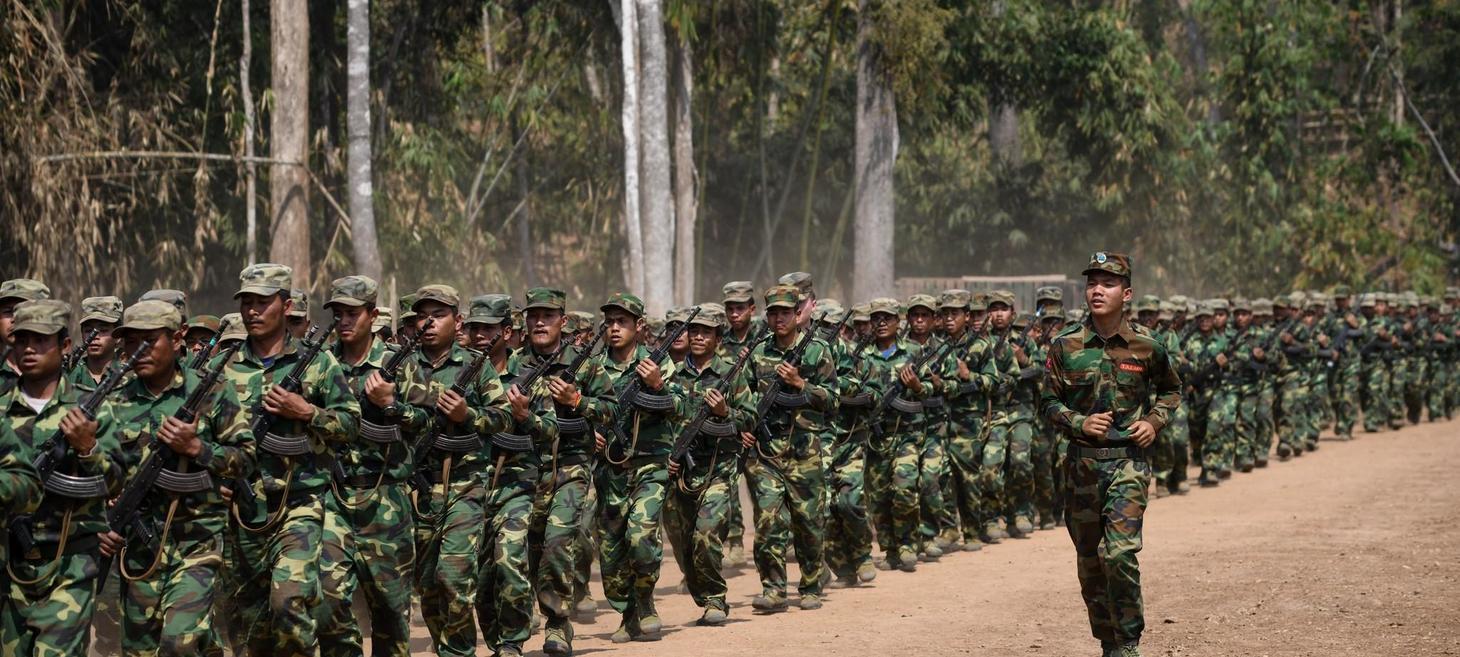
TNLA says ready to negotiate with Myanmar regime to end conflict
The Ta’ang National Liberation Army (TNLA) has announced its readiness to negotiate with Myanmar’s military regime to end their conflict, citing the devastating impact of junta airstrikes on civilians and China’s mediation efforts. Since launching Operation 1027 in late 2023, the TNLA and its allies have seized most of northern Shan State, prompting frequent military air raids on key towns under anti-regime control, such as Lashio and Kutkai. In its statement, the TNLA expressed a willingness to cooperate with China to achieve peace along the border and alleviate civilian suffering while acknowledging Beijing's role in facilitating dialogue.
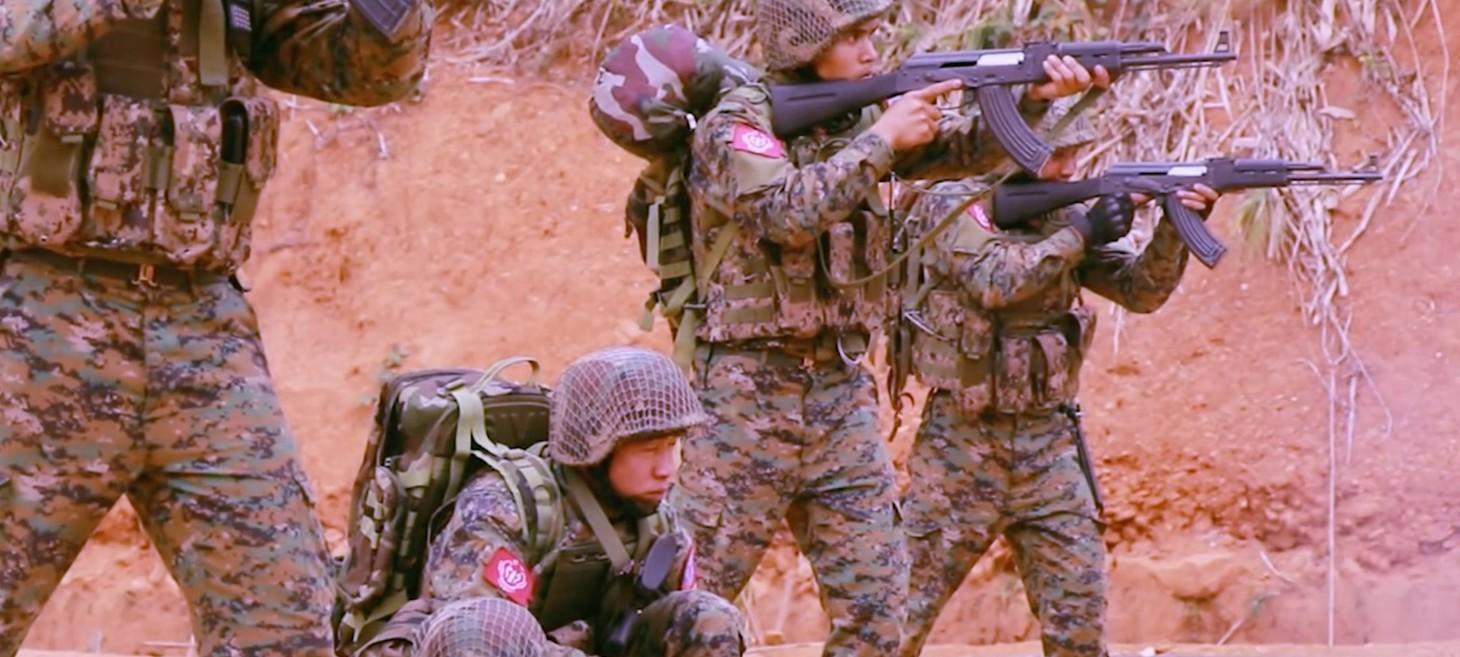
Arakan Army captures Taungup centre while military holds ground at nearby headquarters
The Arakan Army (AA) captured the center of Taungup in southern Rakhine State on Friday, forcing junta forces to retreat from urban areas and solidifying its control over the town. However, the AA has yet to seize key military installations, including the Light Infantry Battalion (LIB) 346 and 544 bases and the Military Operations Command 5 (MOC-5) headquarters, which remain under junta control. The military regime responded with airstrikes earlier in the week, killing at least four civilians amid ongoing clashes. This development highlights the intensifying conflict between anti-regime forces and the junta in Rakhine State.
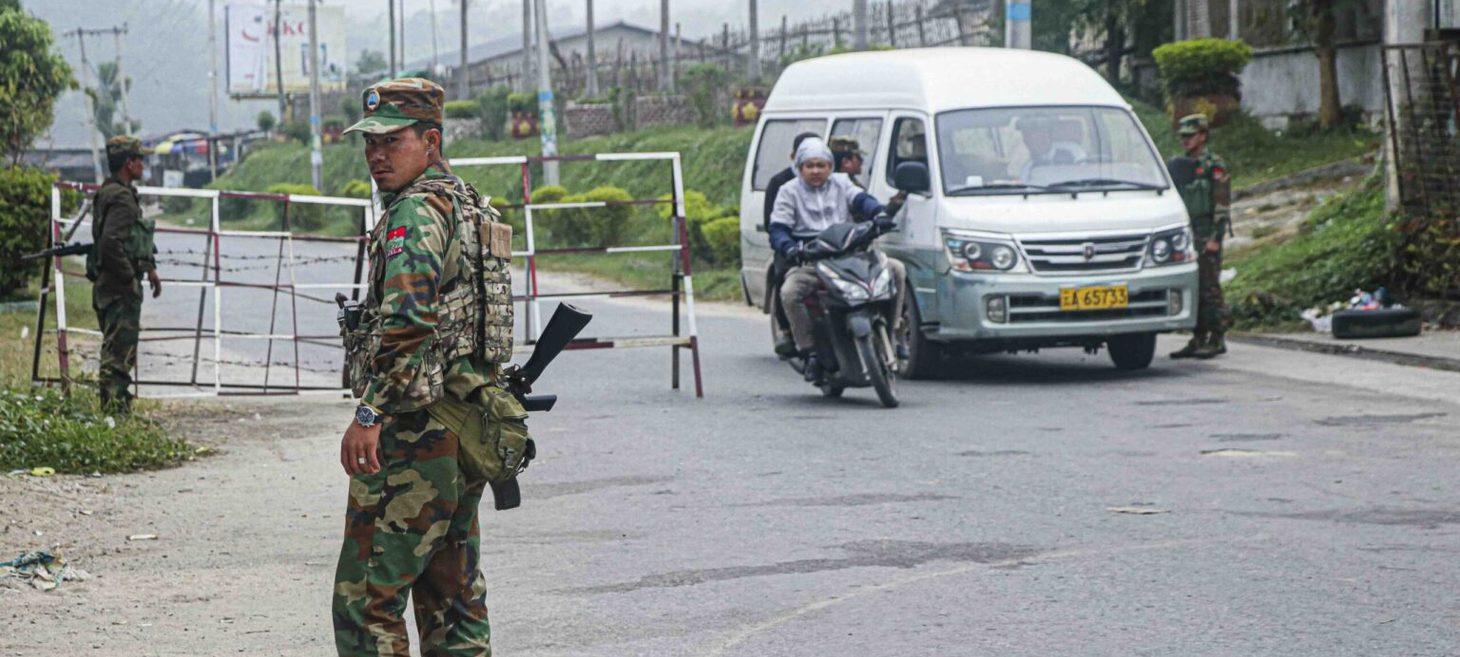
Northern Shan State facing squeeze as Myanmar junta, opponents block each other’s trade
The border town of Muse in northern Shan State, Myanmar, is facing increasing pressure from multiple sides. China closed its border gates at Muse and Mongla on October 22, 2024, in an attempt to pressure ethnic armed groups to halt their offensive against Myanmar's military junta. This closure cut off Muse's access to trade with China. Subsequently, anti-regime forces that have gained control over large areas of northern Shan State have also moved to isolate Muse, which remains one of the few border towns under junta control. As a result, Muse, which serves as Myanmar's most crucial gateway into China, is now caught in a tightening squeeze between the junta and its opponents, significantly impacting trade and potentially leading to further economic and political complications in the region.

False Claims That PDF Fighters Staying In Bombed IDP Camp
On November 18, the pro-junta Myo Chit Myanmar Telegram channel, with around 1,400 subscribers, claimed that an airstrike on the Bangkok IDP camp targeted Karenni resistance fighters hiding there. However, KIC's fact-checking team debunked these claims, revealing that the pictures used as "proof" were taken from the Mobye People's Defence Force Facebook page and showed no military presence. The airstrike, which involved two fighter jets dropping bombs, resulted in the destruction of IDP shelters and the death of a 45-year-old woman, with no evidence of armed groups present. Reports from the Union of Karenni State Youth and independent media confirmed that the attack targeted civilians, contradicting the Myo Chit Myanmar channel's narrative.
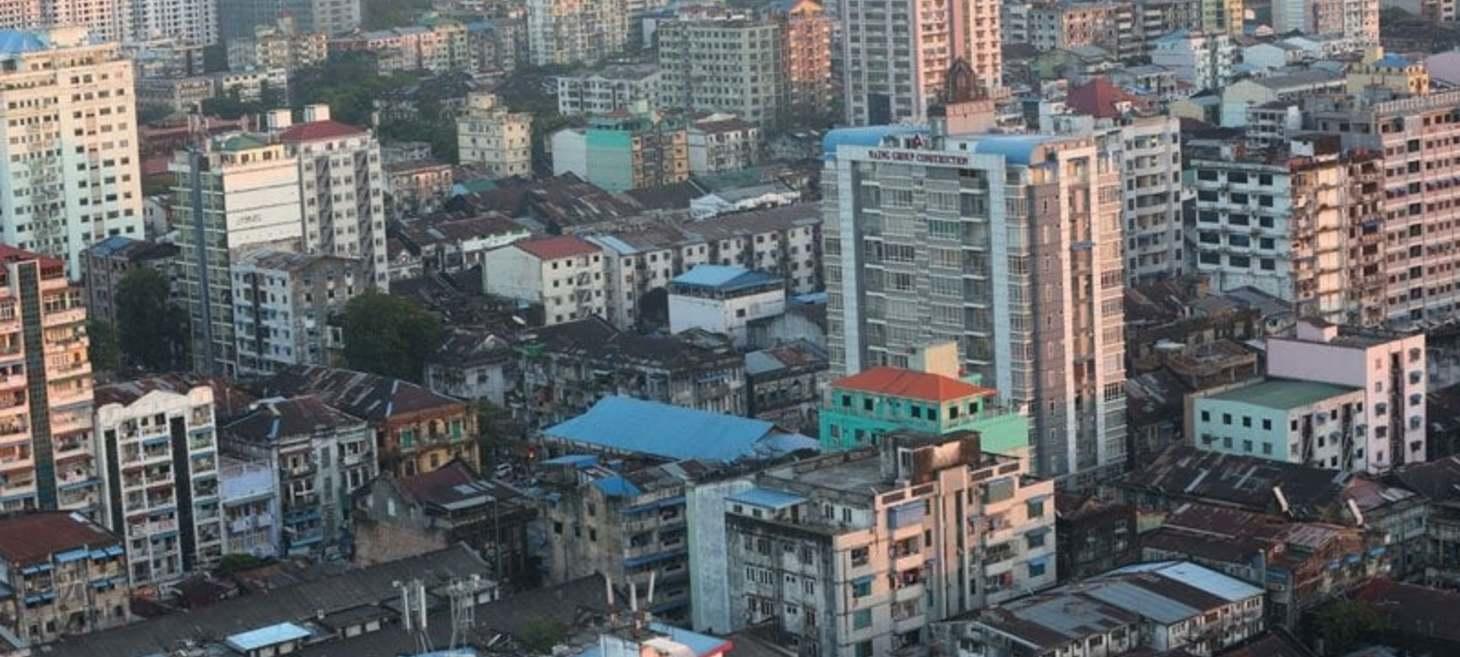
Urban guerrilla groups target military-controlled offices in Yangon
On November 21, urban guerrilla groups in Yangon launched attacks on two military-controlled offices. The Yangon Army (YA) targeted the Myawaddy Television office in Hmawbi Township using M79 grenade launchers, marking their first anniversary by attacking a site they accuse of spreading propaganda. Meanwhile, the North Okkalapa Township People’s Defense Force (PDF) attacked the No. 14 Ward Administrator’s Office in South Okkalapa Township with grenades, claiming it was in retaliation for the killing of their comrade, Chocolat, by employees of a nearby restaurant. Both groups confirmed their actions, and investigations into the damage from these attacks are ongoing.
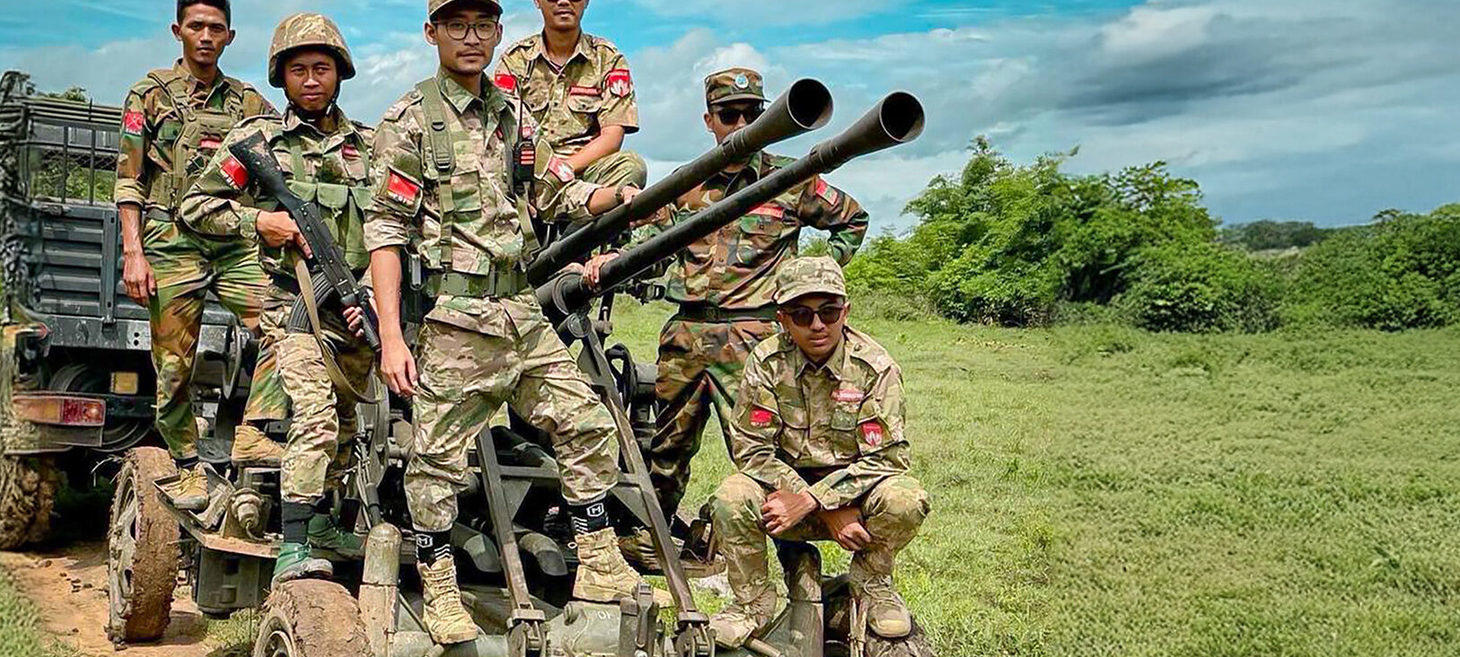
Myanmar Junta Seize Western Madaya From Resistance Groups
The Myanmar military junta has successfully seized control of western Madaya from resistance groups, marking a significant territorial gain in their ongoing conflict. This area, located in Mandalay Region, was previously under the control of the People's Defense Forces (PDF) and allied ethnic armed organizations. The junta's offensive involved heavy artillery and airstrikes, leading to the withdrawal of resistance forces. The capture of western Madaya is strategically important for the junta as it strengthens their hold in central Myanmar and disrupts the supply lines of resistance groups. This development is part of the broader conflict following the military coup in February 2021, which has led to widespread unrest and resistance across the country.
Crime & Narcotics
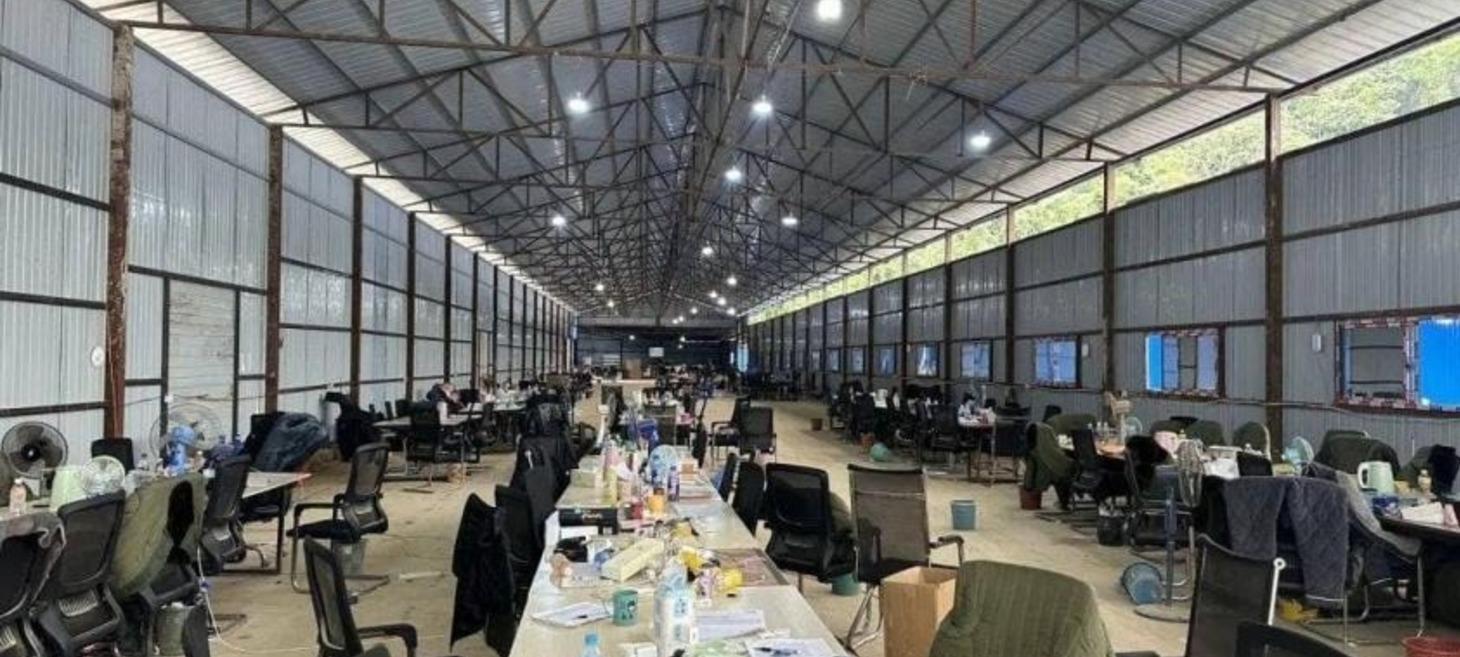
UWSA Hands Over 700 Scammers to Chinese Police
The United Wa State Army (UWSA) arrested around 1,000 individuals involved in telecom scamming operations in Tangyan Township, Shan State, handing over 762 Chinese nationals, along with confiscated equipment such as Starlink devices and mobile phones, to Chinese authorities on November 19, 2024. This marked a significant shift in the UWSA’s stance, as they had previously protected these scam operations, possibly due to pressure from China, which is heavily targeted by Myanmar-based scams. The UWSA also detained 300 Myanmar nationals involved but plans to release them after interrogations. The scam centers, often located in remote areas like former rubber plantations, exploit local job shortages caused by ongoing military conflict, recruiting locals with promises of high wages. The UWSA’s control of Tangyan Township began in July 2024 after deploying troops across the Thanlwin River and negotiating with the junta. This is the first time the UWSA has acted against scam operations in the area.
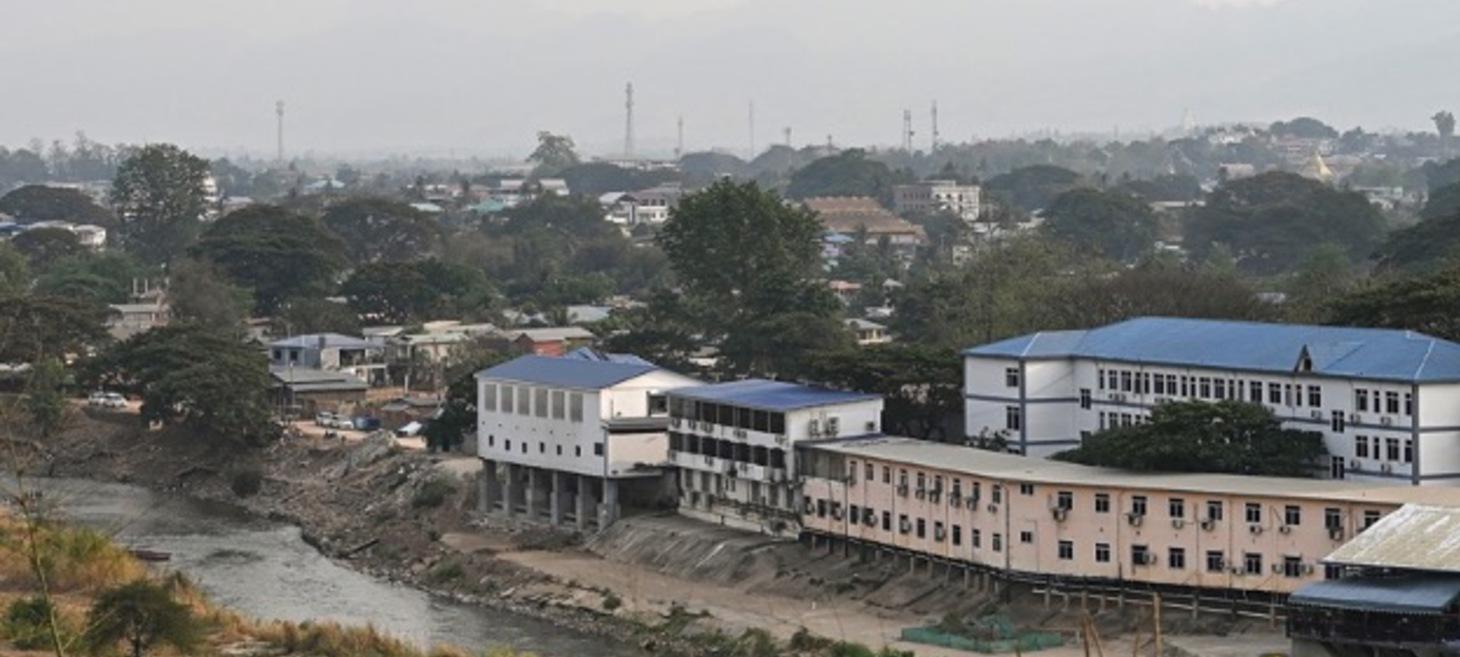
39 foreigners flee Myanmar scam centre: Thai police
Thirty-nine foreigners from Sri Lanka, Nepal, Malaysia, and Russia escaped an online scam center in Myanmar’s Myawaddy and crossed into Thailand’s Tak Province, where authorities are working to identify potential trafficking victims. Myawaddy, controlled by a military-aligned militia, has become a hub for drug production and scam operations, often involving trafficked individuals forced to work in fraudulent schemes. Sri Lanka’s embassy in Bangkok had requested Thai assistance after learning that 32 of its citizens were trapped in such conditions, highlighting the growing human trafficking and exploitation crisis tied to these scam compounds.
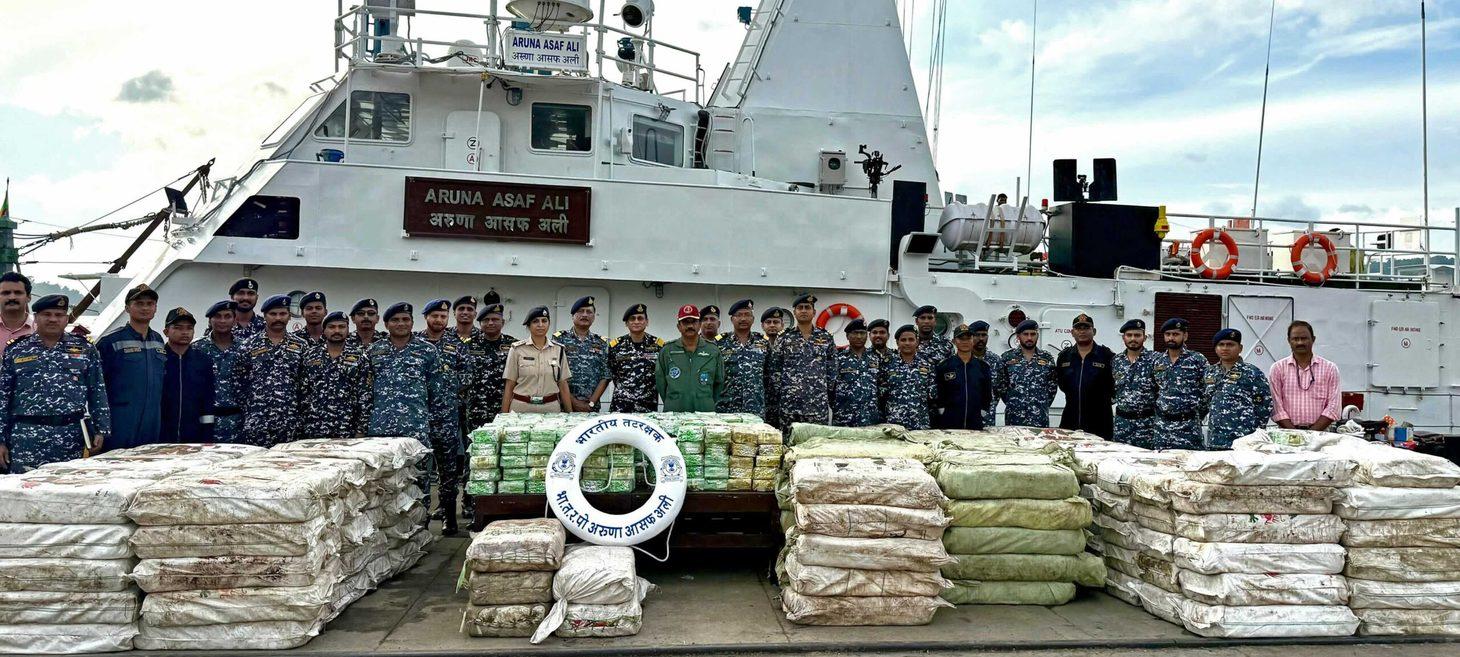
India seizes 5.5 tonnes of Myanmar meth in ‘biggest-ever’ drug bust - myanmar-now
India's Coast Guard seized 5.5 tonnes of methamphetamine originating from Myanmar in its largest-ever drug bust. The operation occurred after a reconnaissance air patrol spotted a suspicious fishing boat in the Andaman Sea, leading to its interception and boarding at dawn on Sunday as it entered Indian territorial waters. The boat, crewed by six Myanmar nationals, was found carrying the massive drug haul and has since been taken to an Indian naval base. This seizure highlights both the scale of narcotics trafficking linked to Myanmar and India's efforts to secure its territorial waters amidst Myanmar's ongoing political and social turmoil.
Economy
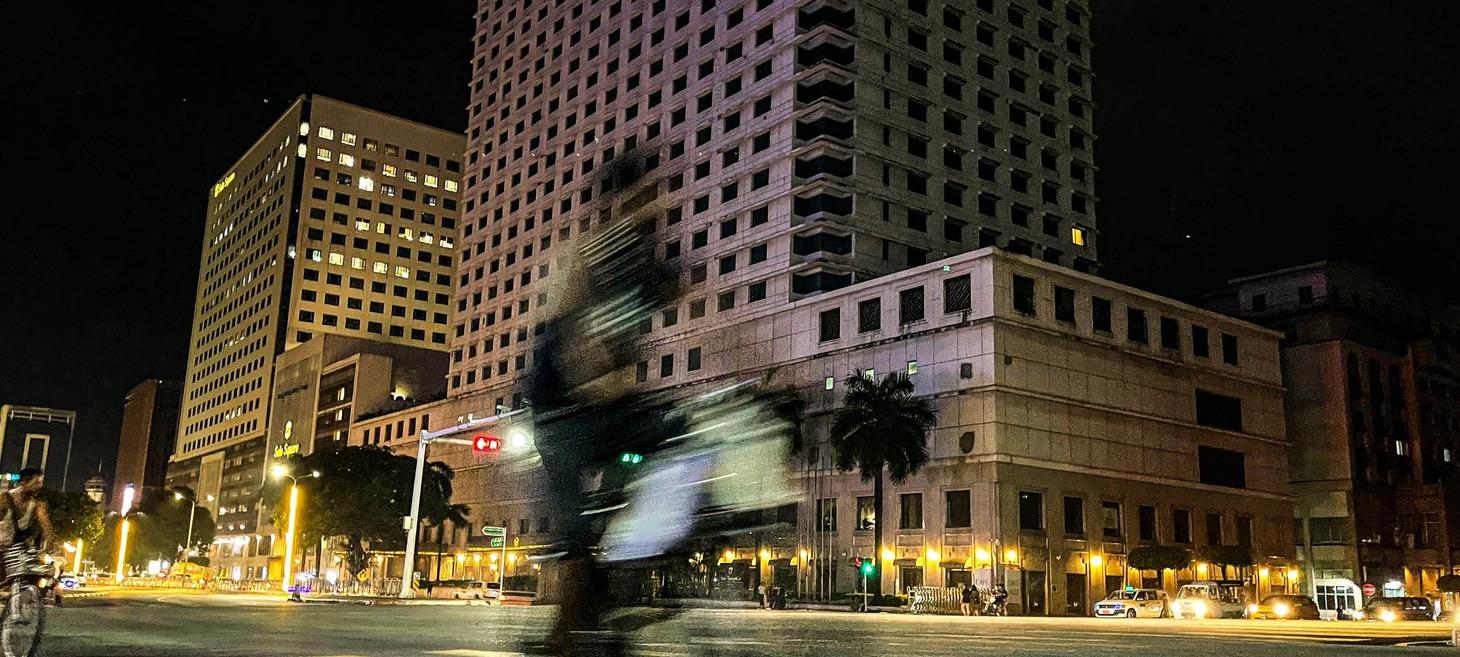
Foreign Investment in Myanmar at lowest level since coup
Foreign investment in Myanmar has plummeted to its lowest level since the February 2021 military coup, reflecting a sharp decline in investor confidence due to political instability, economic mismanagement, and international sanctions. The junta’s inability to stabilize the economy, coupled with ongoing armed conflict and human rights abuses, has deterred foreign businesses. Key sectors such as manufacturing, energy, and real estate have seen significant reductions in investment inflows. This downturn underscores the broader economic challenges Myanmar faces under military rule, as the country struggles to attract capital amidst a deteriorating business climate and growing isolation from the global economy.
Ethnic Issues
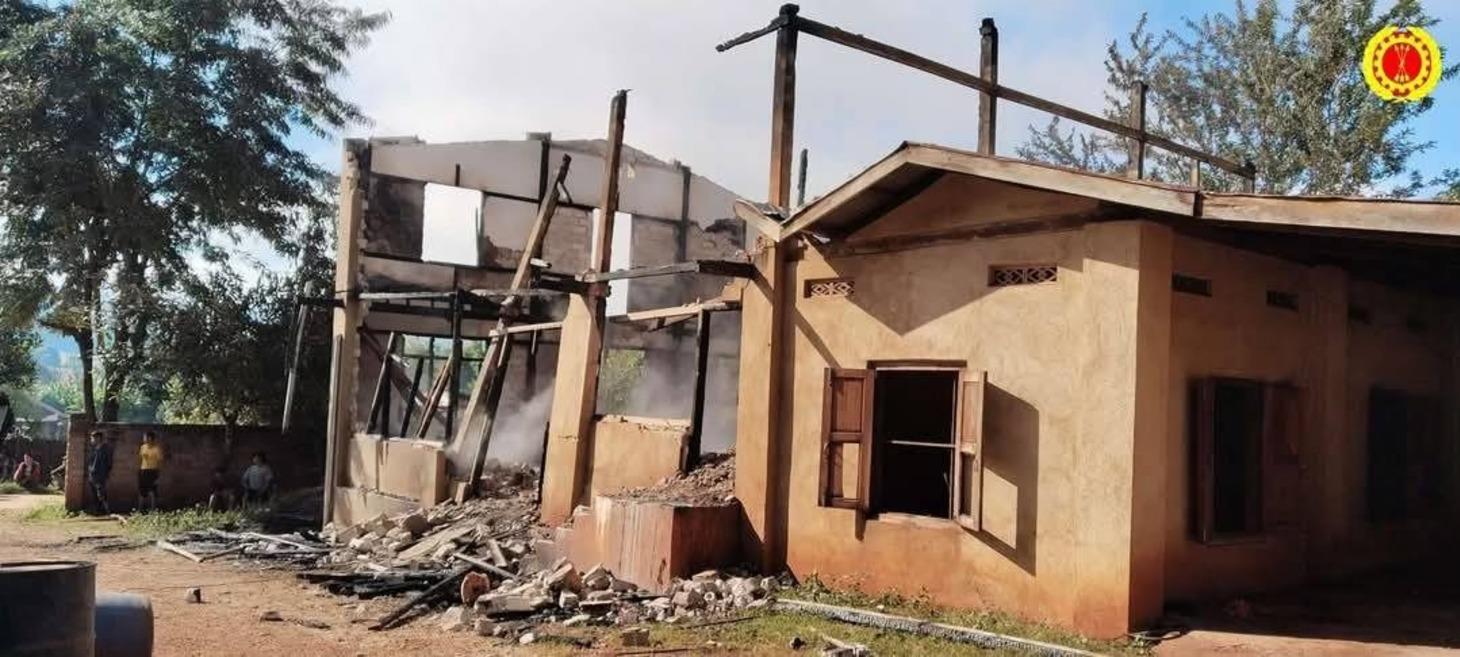
RCSS Accused of Attacking Two SSPP/SSA Bases
On November 25, the RCSS launched an attack on two SSPP/SSA outposts near Pangpwe Village in Mong Kong Township, deploying around 100 troops in three columns. The RCSS reportedly captured four SSPP/SSA soldiers, burned the outposts along with vehicles, and rampaged through Pangpwe Village, killing a local administrative official, looting homes and a grocery store, and abducting a villager. The SSPP/SSA accused the RCSS of exploiting ongoing peace talks to launch the assault, noting its own restraint to avoid hostility. Historically divided between southern (RCSS) and northern (SSPP/SSA) Shan State, tensions between the two Shan ethnic armed groups have escalated despite their lack of involvement in anti-coup struggles. The attack drew criticism on social media for internal conflict amid Myanmar's broader crisis, while the RCSS has yet to respond to the allegations.
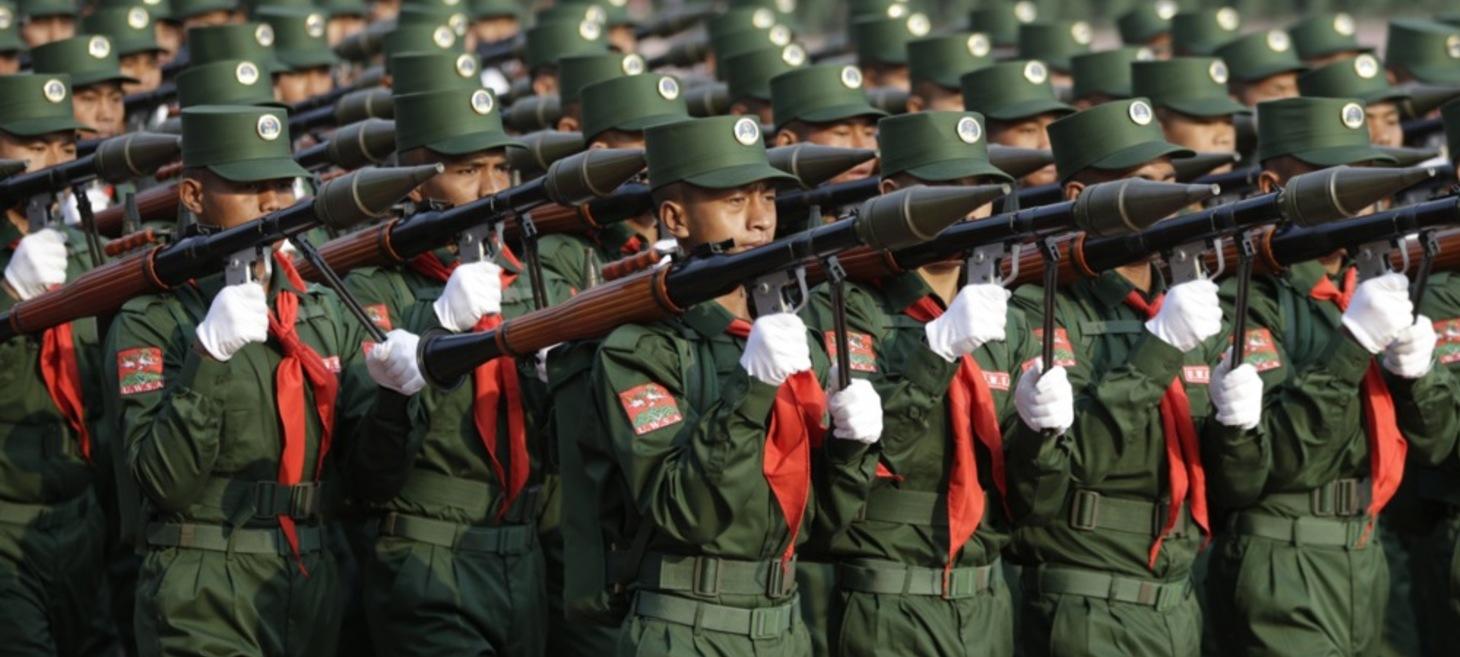
Thai military tells UWSA to move camps away from Thai-Myanmar border
The United Wa State Army (UWSA) has confirmed that Thailand’s military has ordered it to relocate nine camps in southern Shan State away from the Thai-Myanmar border. The directive was reportedly issued during a recent meeting in Chiang Mai, but the UWSA has not complied, leaving the camps in place. In response, Thailand has bolstered its military presence along the border, with artillery units from the 3rd Army region placed on standby. Despite these rising tensions, the UWSA stated that its own activities remain unchanged.
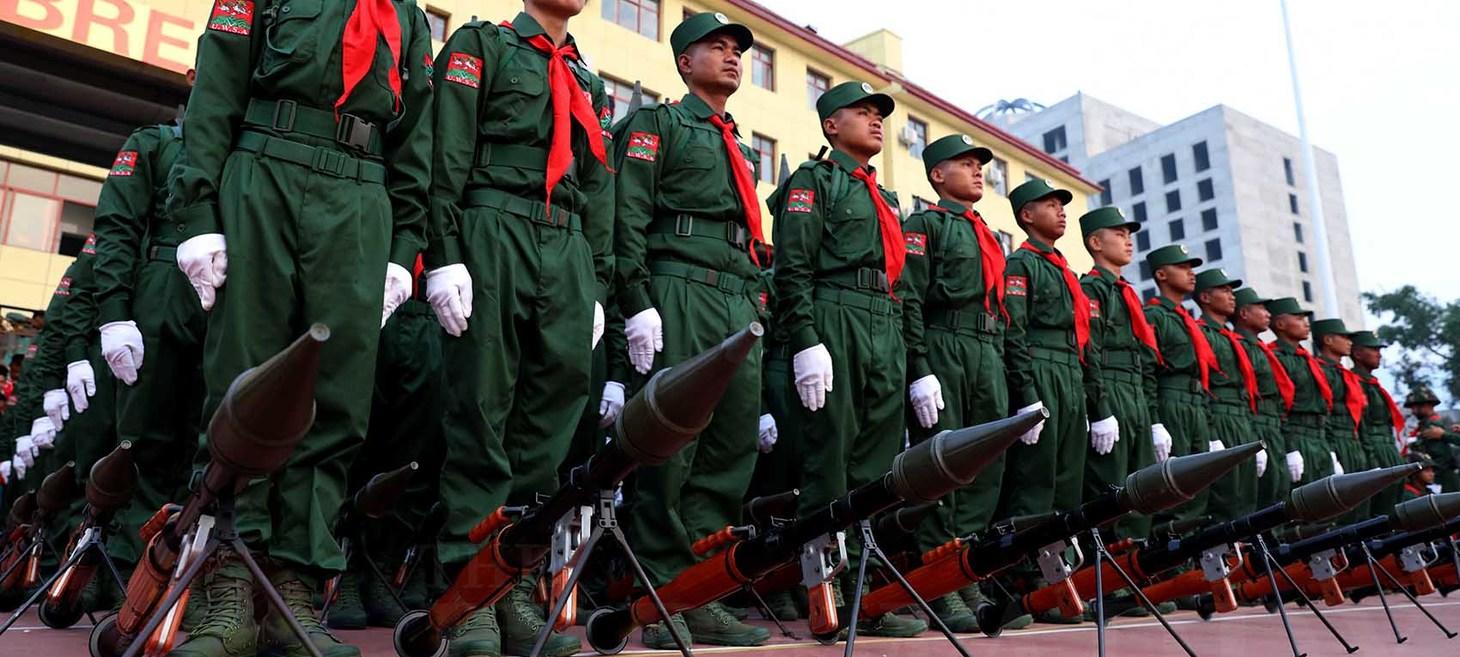
Tensions High on Myanmar Border as Thai Troops Demand UWSA Withdrawal
Tensions are escalating on the Myanmar-Thailand border as Thai military forces have demanded the withdrawal of the United Wa State Army (UWSA) from a disputed area. The UWSA, an ethnic armed group, has been present in the region, which has led to increased friction with Thai authorities. The situation is further complicated by the broader instability in Myanmar following the military coup, which has heightened security concerns in neighboring countries. The Thai military's demand for UWSA's withdrawal underscores the delicate balance of power and the potential for conflict in border areas affected by Myanmar's internal strife.
Foreign Affairs
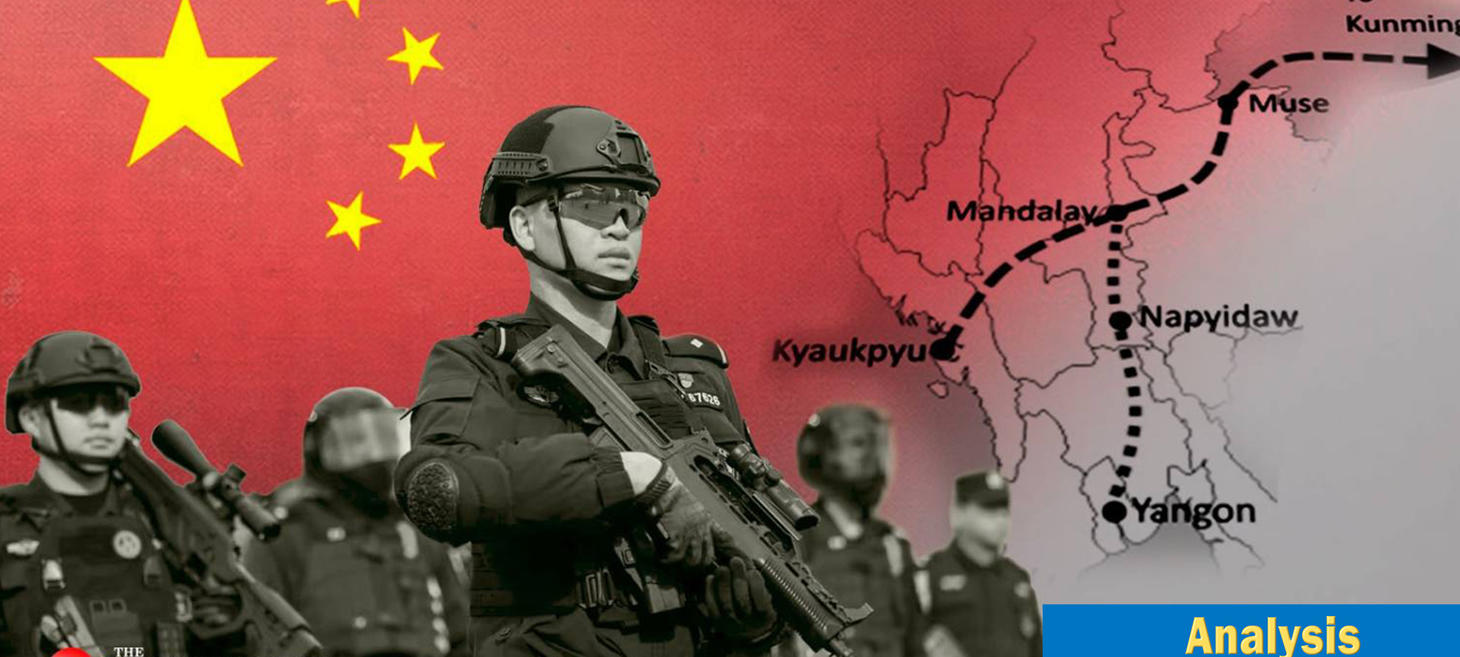
With Proposed Security Gambit, Beijing Decides ‘Enough Is Enough’ in Myanmar
China is taking a firmer stance on Myanmar's ongoing crisis, proposing a security initiative to address instability along their shared border. Beijing aims to protect its interests and citizens amid rising violence and lawlessness in northern Shan State. If necessary, the plan involves joint patrols, intelligence sharing, and potential military intervention. While China has historically maintained good relations with both the junta and ethnic armed groups, recent attacks on Chinese nationals and infrastructure have prompted this shift. The proposal signals China's growing concern over regional stability and its willingness to take a more active role in addressing the situation, potentially altering the dynamics of Myanmar's conflict.
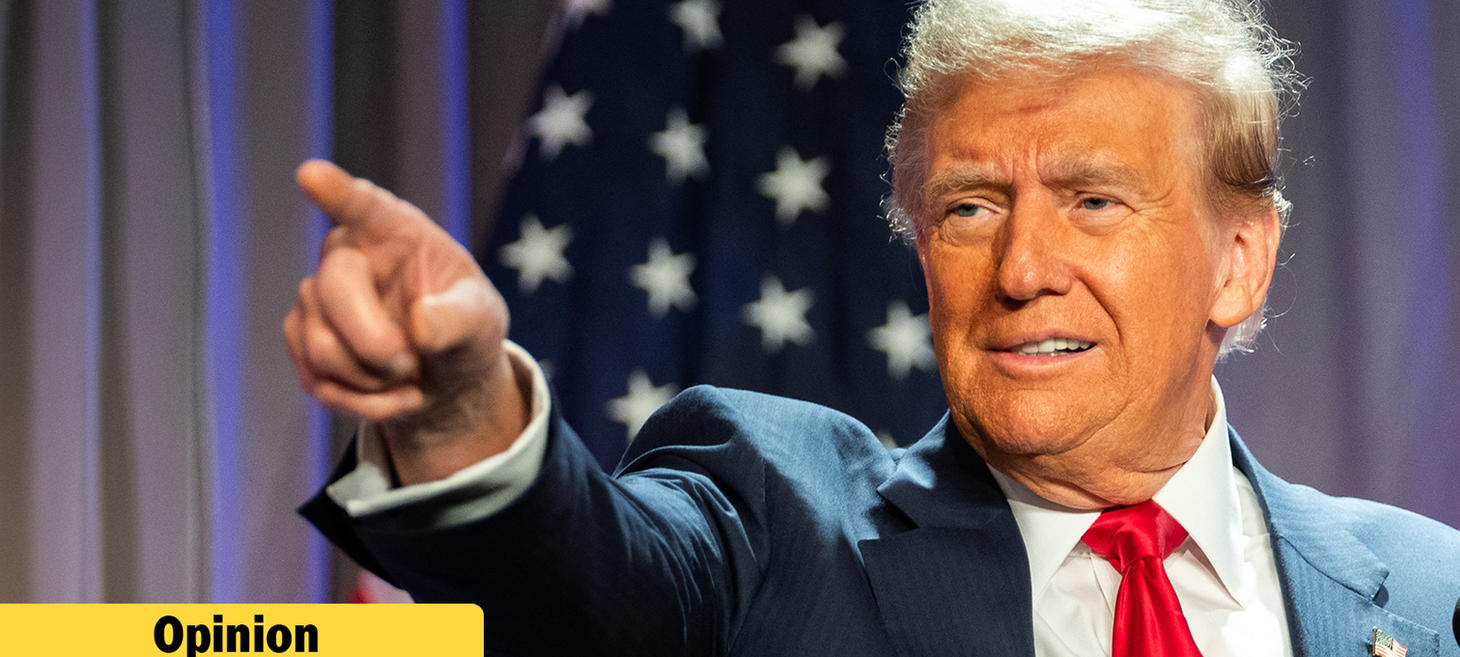
The Best Myanmar Can Hope for From Trump Is Benign Neglect
The article discusses the implications of Donald Trump's presidency for Myanmar, suggesting that the best outcome for the country may be "benign neglect." It argues that under Trump's administration, Myanmar is unlikely to receive significant attention or support, which could result in a lack of intervention in its ongoing crises, including human rights abuses and political turmoil. The author posits that while this neglect may prevent further detrimental policies from being enacted, it also means that Myanmar will not benefit from any proactive U.S. engagement or assistance. Ultimately, the piece reflects a pragmatic view on the limitations of U.S. foreign policy towards Myanmar during Trump's tenure.

Min Aung Hlaing Welcomes More Chinese Private Security Firms in Its Territory
During the recent Greater Mekong Subregion (GMS) Summit in Kunming, Myanmar’s military chief, General Min Aung Hlaing, agreed with Chinese authorities to form a cooperative security force to protect Chinese nationals and businesses in Myanmar, despite constitutional prohibitions against foreign troop deployment. Observers note that this reflects the regime's willingness to bypass laws for its interests. China, Myanmar’s largest investor, has increasingly relied on private security companies (PSCs) to safeguard its 19 projects in the country, many of which are in conflict zones controlled by resistance groups like the MNDAA and TNLA. While China has pressured ethnic armed organizations (EAOs) to avoid disrupting its projects, ongoing conflicts have led to collaboration with the Myanmar military to deploy PSCs. This arrangement not only secures Chinese investments but also strengthens the military regime’s legitimacy with China's backing. However, concerns are growing that these PSCs could become powerful entities influencing EAOs negatively, especially if EAOs fail to unite and instead continue internal disputes, risking their role as de facto protectors of Chinese interests.
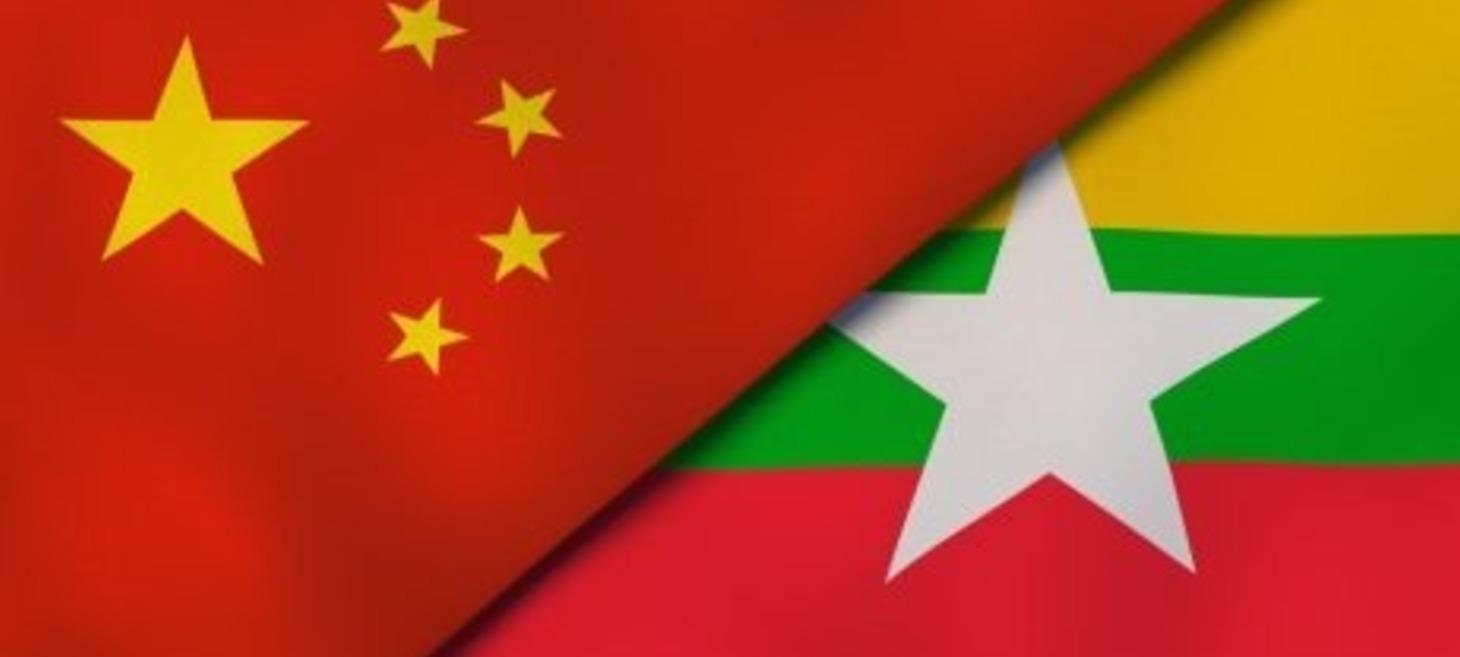
PRIVATE MILITARY COMPANIES IN MYANMAR: China upping the ante or bulldozing through?
China is intensifying its involvement in Myanmar by deploying private military companies (PMCs) to safeguard its economic interests, particularly the Kyauk Phyu Special Economic Zone in Rakhine State, through a joint security initiative with Myanmar’s military regime. These PMCs, often staffed by former Chinese military personnel, are seen as proxies for the People’s Liberation Army (PLA) and are tasked with protecting Chinese projects across Myanmar, including mines, pipelines, and hydropower plants, many of which are in conflict zones controlled by ethnic armed organizations (EAOs). While China pressures EAOs to avoid disrupting its projects, most resistance groups, including the Kachin Independence Army (KIA) and Arakan Army (AA), reject these demands and continue their fight against the junta. Meanwhile, China’s backing of the junta has alienated opposition groups like the National Unity Government (NUG), which calls for sovereignty and criticizes Beijing's interference. As China ramps up support for the junta, including aiding its planned 2025 elections, anti-junta forces face mounting challenges but remain committed to resisting both the military regime and China’s agenda. Regional players like India and Bangladesh are beginning to engage with resistance groups, offering potential counterbalances to China’s growing influence.
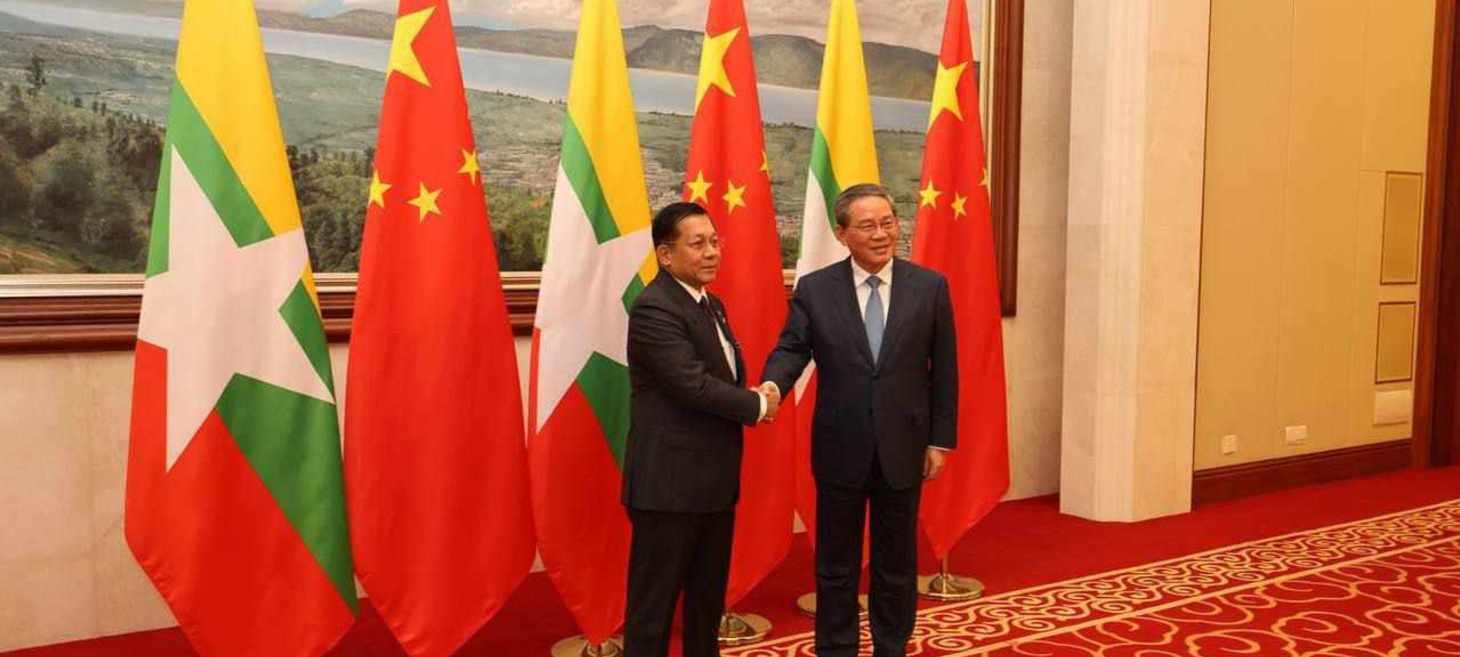
China to give Myanmar junta 1 billion yuan in aid for election, other projects
China is providing Myanmar’s military junta with 1 billion yuan (approximately $138 million) in financial and technical aid for 20 projects, including a national census, infrastructure development, and surveillance systems, according to leaked documents. This support, finalized during junta leader Min Aung Hlaing’s recent visit to China, reflects Beijing’s deepening ties with the regime that seized power in 2021. Around 15% of the funding will go toward the delayed national census, now extended to year-end with Chinese involvement. The aid underscores China’s strategic backing of the junta as it consolidates control and prepares for controversial elections, further entrenching its influence in Myanmar.

ICC prosecutor seeks arrest warrant for Myanmar junta chief
The International Criminal Court (ICC) prosecutor has requested an arrest warrant for Myanmar's military leader, Min Aung Hlaing, over alleged crimes committed against the Rohingya minority. This marks a significant step in holding Myanmar’s military accountable for atrocities, including mass killings and forced deportations, which the UN has described as genocide. The ICC’s move follows years of international condemnation and builds on its ongoing investigation into the 2017 crackdown that forced over 700,000 Rohingya to flee to Bangladesh. If approved, the warrant would intensify global pressure on Myanmar’s junta, which has faced widespread criticism since seizing power in a 2021 coup.
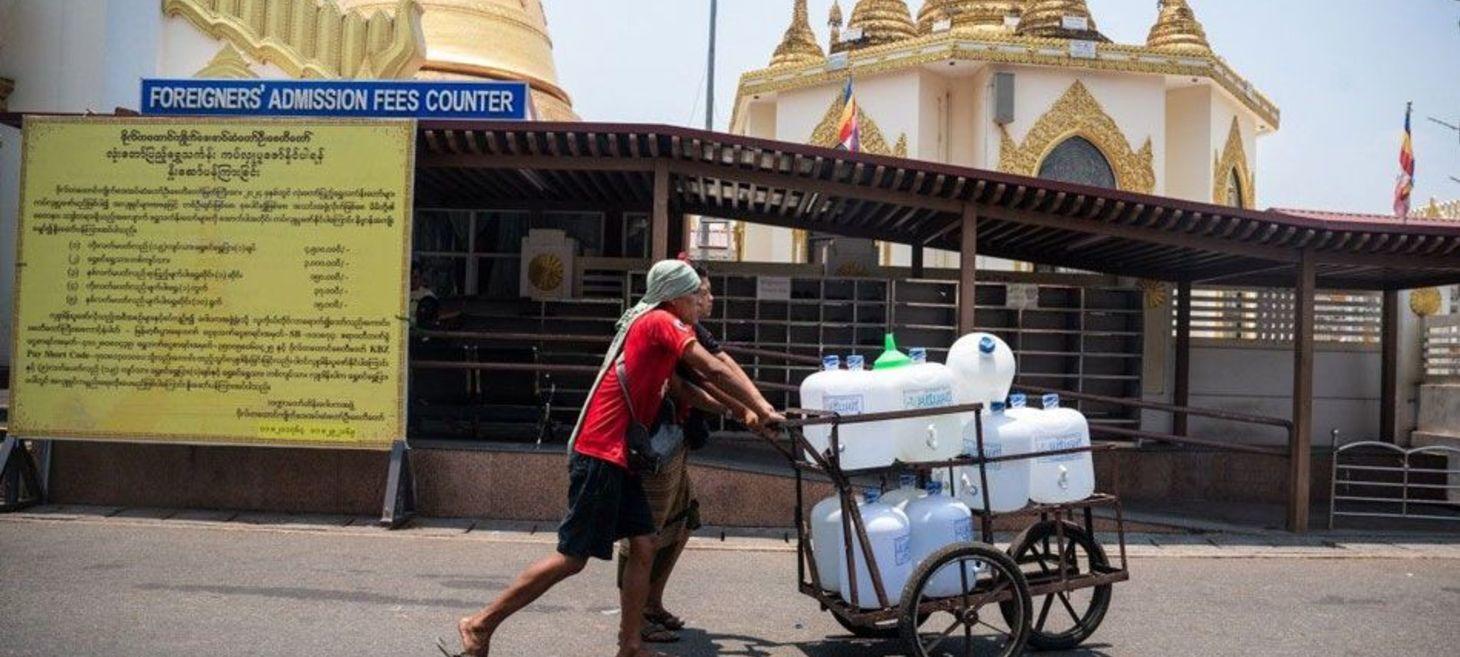
Myanmar: How far will China go to keep junta afloat? - ABS-CBN.COM
China continues to support Myanmar's military junta despite its international isolation, driven by strategic and economic interests, including access to Myanmar's natural resources and infrastructure projects under the Belt and Road Initiative. Beijing has provided diplomatic backing, economic aid, and arms sales to the regime, helping it withstand sanctions and internal resistance. However, China's approach is cautious, as it seeks to balance its influence in Myanmar while avoiding alienating ethnic armed groups along the border or sparking anti-China sentiment among Myanmar's population. This delicate balancing act underscores China's pragmatic strategy to maintain stability and safeguard its regional interests.
Government Media Sources

Russia starts recruitment of Myanmar workers, says MOEAF official
Russia has begun recruiting workers from Myanmar, as confirmed by an official from the Myanmar Overseas Employment Agencies Federation (MOEAF). This initiative is part of a broader effort to send Myanmar workers abroad, with Russia being a new destination. The recruitment process is being facilitated by the MOEAF, which oversees the deployment of Myanmar workers to various countries. This move comes amid ongoing economic challenges in Myanmar, prompting the government to explore new employment opportunities for its citizens overseas.
Humanitarian

IDPs suffering malnutrition as aid sources decline
Internally displaced people (IDPs) in central Myanmar are facing severe malnutrition due to declining aid sources, highlighting a critical human rights issue as over a quarter of Myanmar's population lacks sufficient food. This situation is particularly dire for IDPs, who are among the most vulnerable groups. The issue is covered in a story by a freelance journalist, available in both English and Burmese, and is part of the Doh Athan podcast series, which focuses on human rights issues in Myanmar. The podcast is produced by local journalists in collaboration with media partners and supported by Fondation Hirondelle and other donors.
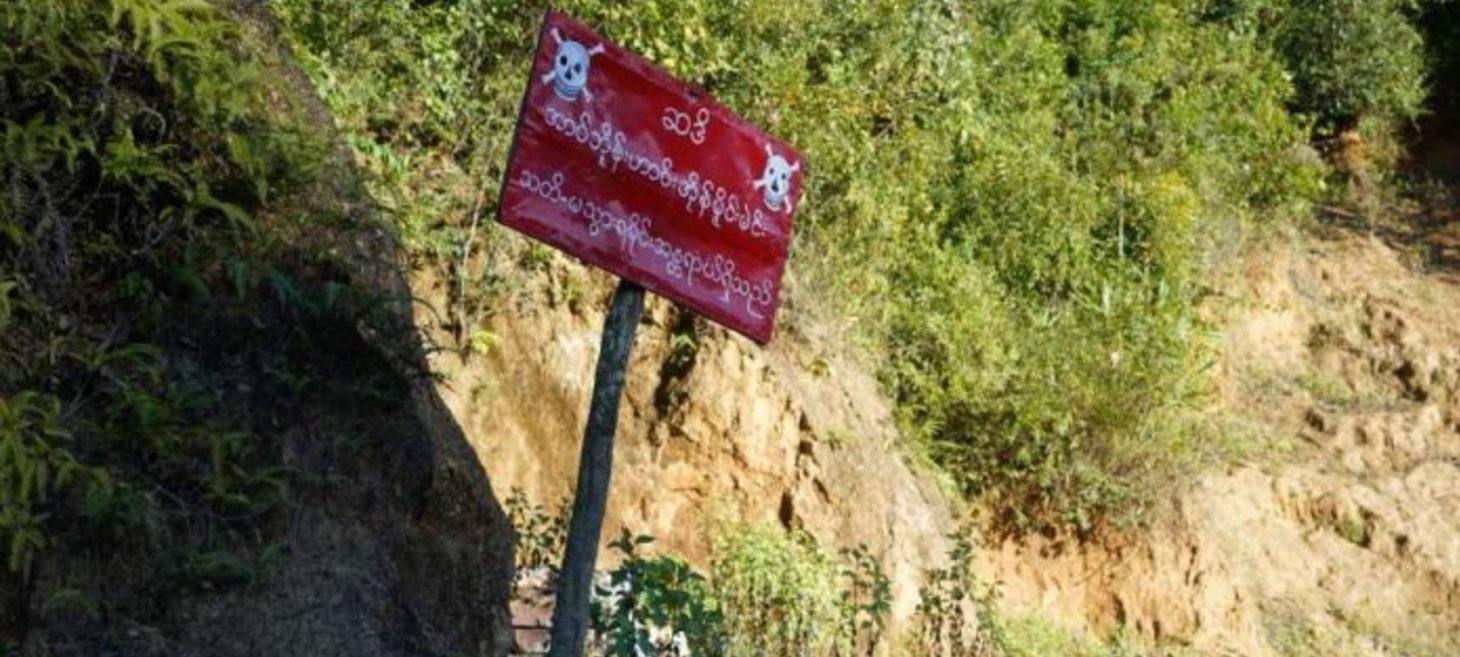
Myanmar’s conflict, criminal networks are ‘out of control’
Myanmar is facing a worsening human rights and humanitarian crisis under its military junta, marked by widespread atrocities such as beheadings, gang rapes, torture, and the use of civilians as human minesweepers. Over 3.4 million people are displaced, nearly 40% of whom are children, with many killed or maimed in attacks on homes, schools, and hospitals. Landmine casualties are the highest globally, and victims with disabilities face harassment and denial of medical aid. UN officials, including Special Rapporteur Tom Andrews and UNICEF’s Ted Chaiban, have called for urgent international action to halt arms flows to the junta, block aviation fuel supplies, and increase humanitarian aid. They emphasize that inaction will further endanger Myanmar’s vulnerable population, particularly children. Criticism has also been directed at UN Secretary-General Antonio Guterres for his perceived lack of leadership in addressing the crisis.
Weather & Environment
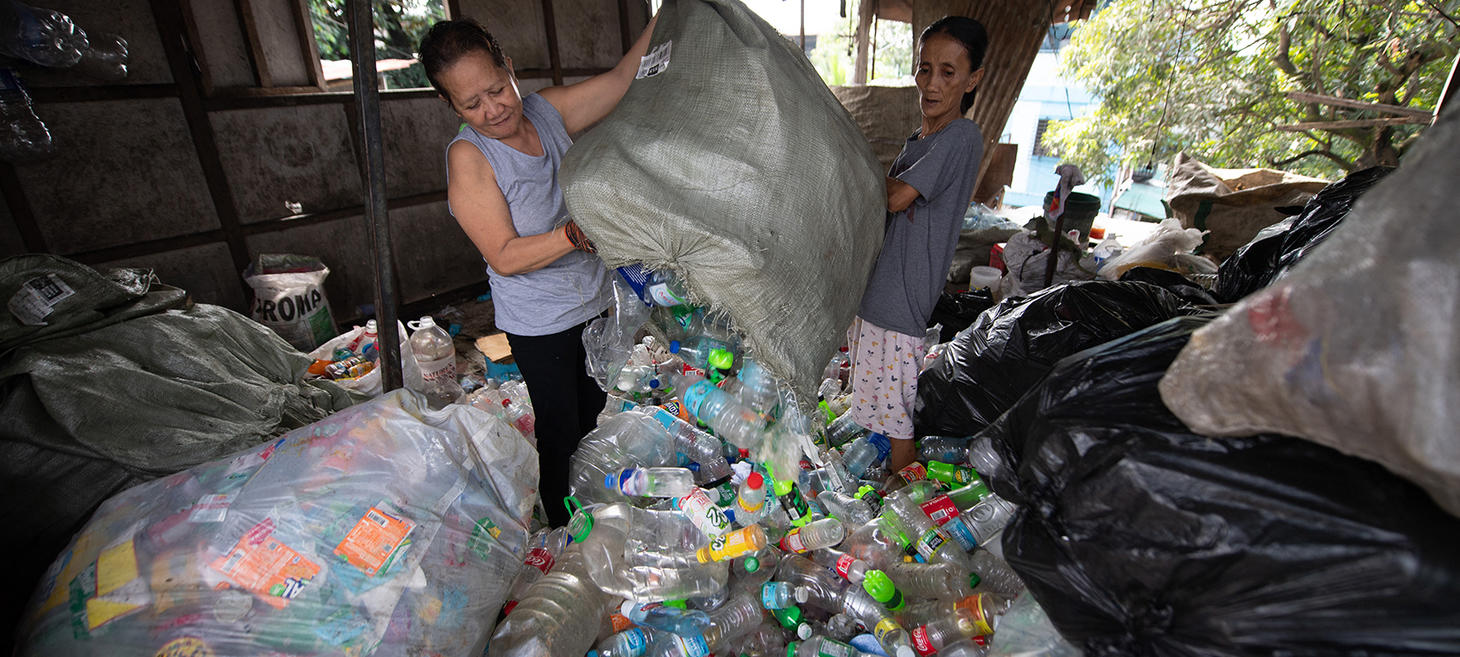
‘Existential Challenge’: Plastic Pollution Treaty Talks Begin
Final negotiations on a global plastic pollution treaty have begun in Busan, South Korea, with significant divisions between nations evident. The talks aim to address the "existential challenge" of plastic pollution, which affects human health and the environment worldwide. Key contentious issues include capping plastic production, banning toxic chemicals, and funding implementation. Some countries, led by the High Ambition Coalition, want to address the full lifecycle of plastics, while others, mainly oil producers, prefer focusing on waste management. The outcome depends heavily on positions taken by the US and China. Despite challenges, UN officials urge patience and ambition, hoping to achieve meaningful targets without waiting decades.